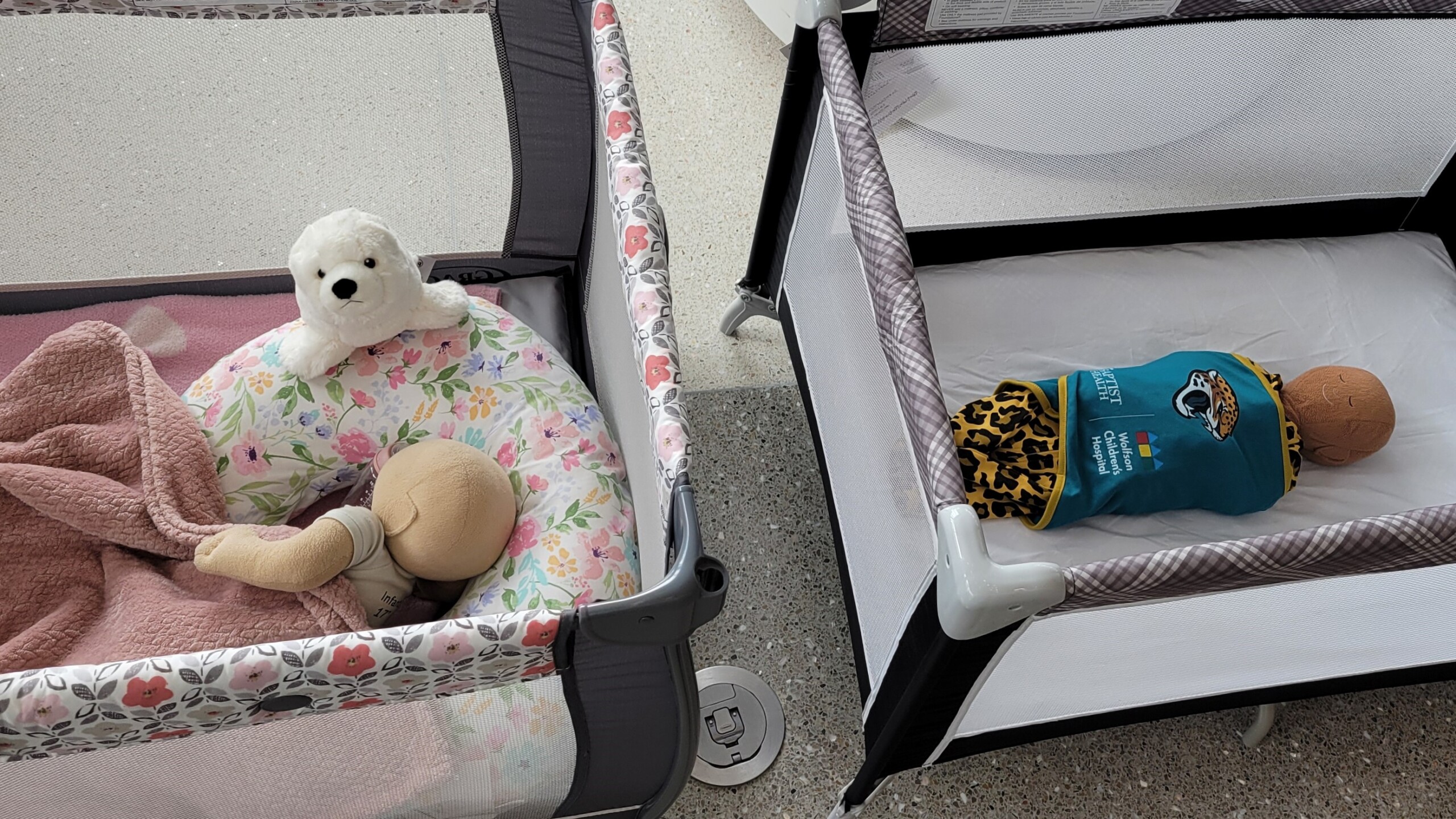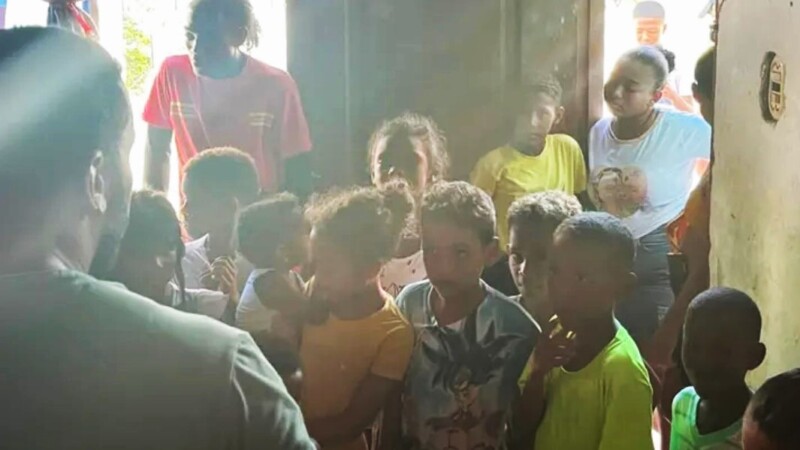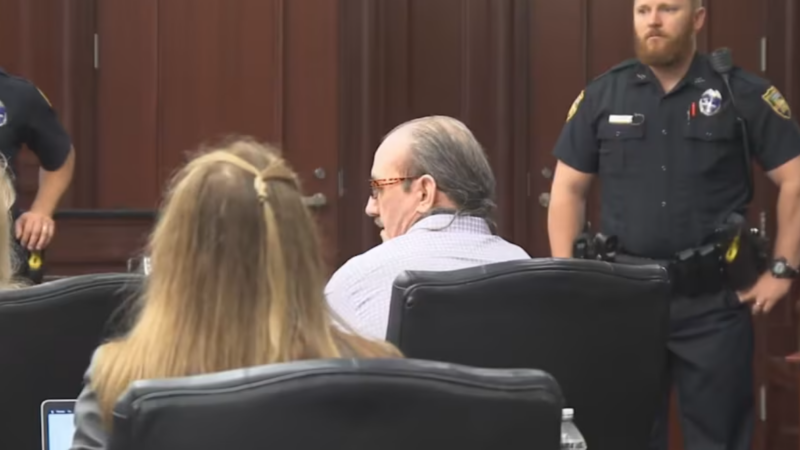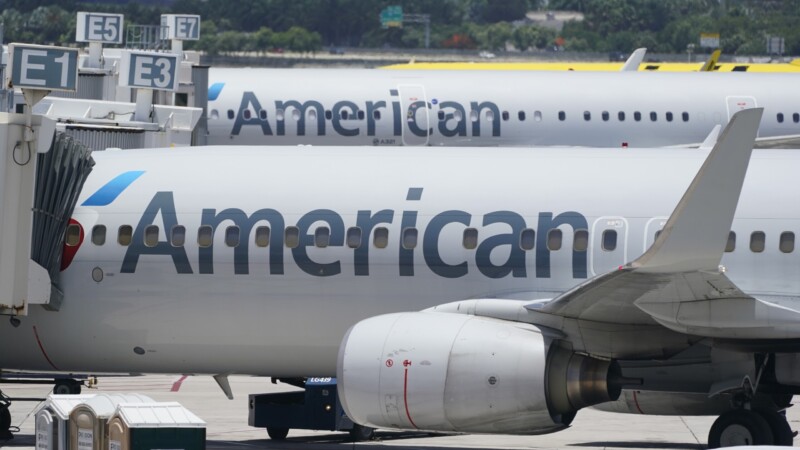No parent goes to sleep thinking their infant son or daughter will not awaken the next day.
Yet more than 3,500 babies under the age of 1 die in sleep-related incidents nationally each year, health officials say.
Some 6.4% of all infant deaths in Northeast Florida — Baker, Clay, Duval, Nassau and St. Johns counties — are due to sleep-related issues. That’s higher than the national average of 5.5% and above Florida’s 6%.
So medical experts, child safety advocates and police gathered Monday during Safe Sleep Awareness Month and Pregnancy and Infant Loss Awareness Month, to advise parents and caregivers about ways to ensure their infants sleep safely.
“Alone is the best advice,” said Faye Johnson, CEO of the Northeast Florida Healthy Start Coalition. “That doesn’t mean that the baby is by themselves per se, as long as it is in a safe environment — in a crib, alone on their back without any items in the bed — any stuffed animals and stuff like that. It could be in the family’s bedroom, pushed next to the bed, and not in the bed with the family.”
Police must investigate every child death. Thirty-six were reported last year in Duval County, according to Florida Department of Children and Families statistics.
Of those, 19 were babies under 1. Four were due to Sudden Infant Death Syndrome, and four more were sleep-related.
The Jacksonville Sheriff’s Office is launching an educational video to explain what people should do to ensure their babies sleep safely, Lt. Mark Lessard said.
“Death investigations in and of themselves are fairly challenging — one involving children are by far the worst, especially being a parent myself,” Lessard said. “You hate to be on the other side of where those parents are dealing with. And that is why we are here — if it is something that is preventable and we can get some information or education out there, for us it will be worth it.”
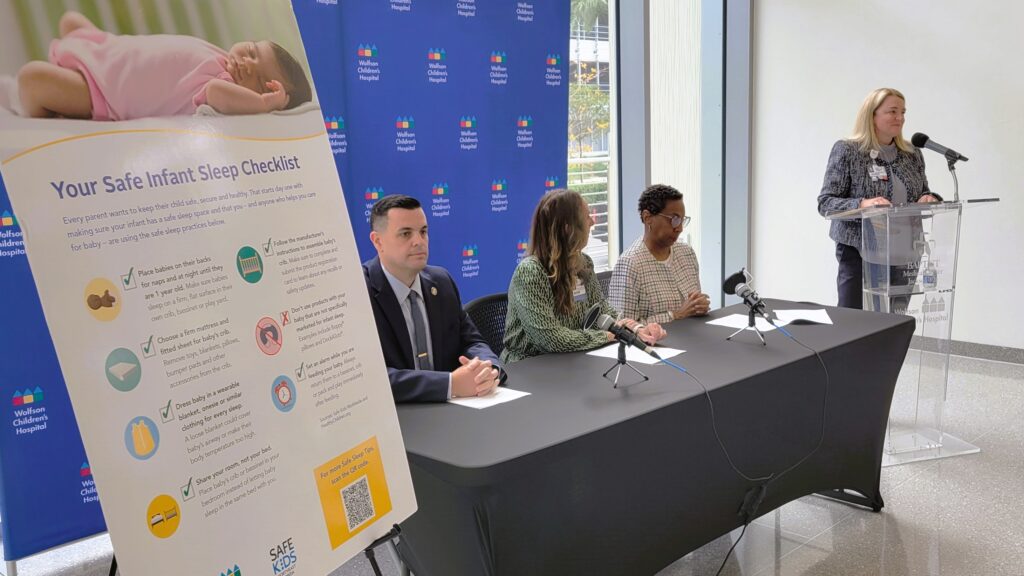
The American Academy of Pediatrics states that sleep-related incidents include SIDS, deaths called “ill-defined deaths,” and accidental suffocation or strangulation in bed. After a substantial decline in sleep-related deaths in the 1990s, the overall death rate attributable to sleep-related infant deaths has remained stagnant since 2000, the academy reports.
A total of 272 children under age 17 died in Florida in 2023, according to DCF statistics. Of those, 214 were under age 1. Thirty-nine were determined to be from SIDS or Sudden Unexpected Infant Death.
Infant death causes
The Sheriff’s Office reported 25 infant deaths in 2021, 23 in 2022 and a further drop to 16 last year. A majority of those children died from accidental suffocation in beds shared with someone else, such as an adult or sibling.
While there is a lot of education available in Duval County to teach safe sleeping practices, Johnson said there are issues in the core urban area.
“A lot of what is driving it is the living conditions,” Johnson said. “When people don’t have a place for the baby to sleep, they will still put them in the beds with them for a lot of different reasons. It may be cultural; it may be that mom is exhausted from working all night and she comes home trying to sleep and puts the baby in the bed with her.”
Studies have shown that the risk for infant death by suffocation is up to 40 times greater when the child is placed in an adult bed rather than a crib. So Wolfson Children’s Hospital and the Northeast Florida Healthy Start Coalition joined police to host Monday’s Safe Sleep Awareness alert.
“Our goal here is prevention,” Safe Kids prevention coordinator Jessica Winberry said. “We know (that) of the babies that die from sleep-related deaths, the vast majority of those are due to suffocation, which happens when an airway is blocked off — the nose and the mouth are blocked off for a few different reasons.”
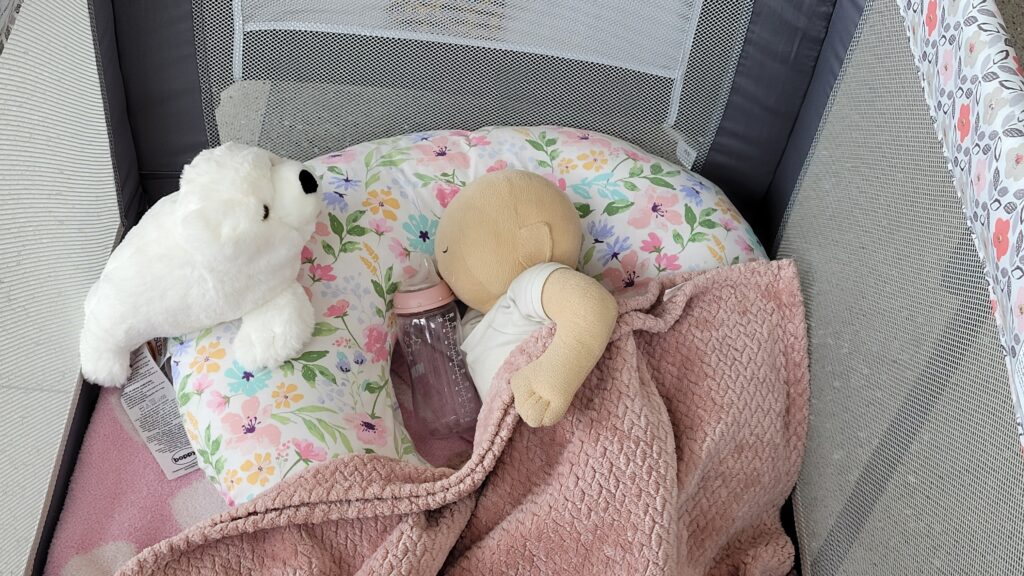
The top risk factors leading to an infant death while sleeping is that they shared a bed with someone impaired by drugs or alcohol, or someone who smokes, the Sheriff’s Office reports in its new video. Sleeping on a soft surface like a waterbed or couch also leads to infant sleep deaths, as does sleeping with soft pillows, blankets or toys.
“We see this happen in so many different ways,” Winberry said. “Study after study, we see that sometimes families know that they have unsafe sleep practices — they have learned that somewhere, and for some reason at certain given times, they end up putting that baby into bed with them, or in a way that’s not safe.”
Continuing need
While the number of sleep-related deaths have gone down in Northeast Florida in recent years, more needs to be done, since many of these deaths are preventable, .Johnson said.
“We want to continue that education, but also the safe sleep classes for folks,” she said. “We have home visitations to assess the safe sleep environments, and they really work with parents.”
Safe Kids Northeast Florida offers infant safety information on safe sleep for a baby — sleep alone, sleep on their back and sleep in a crib.
Wolfson Children’s Hospital also offers Ready, Set, Sleep! classes to teach parents and caregivers the basics of safe sleep, CPR and choking procedures for infants.



